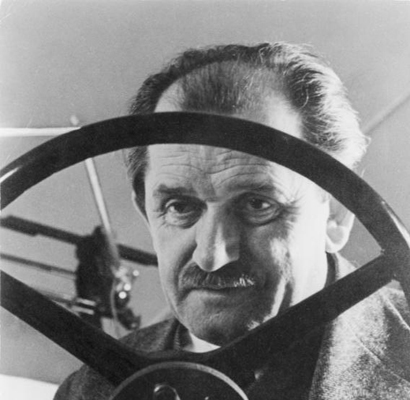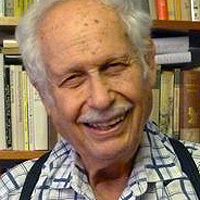
BERLIN — The North German city with the very tourist-attractive name “Wolfsburg” boasts of two things, though both are second best. Its soccer team, though top-notch, could not overtake the best, wealthiest Bayern Munich team. And the world-famous auto brand of this company town, Volkswagen, or VW, is still behind Toyota (or is it now GM?) in selling cars. But not far behind!
The Volkswagen name recently filled business pages and spilled onto all the front pages. The leadership drama at the world’s biggest employer (outside China and Walmart), with 20 percent voting control by Lower Saxony and 17 percent by the oil-and-dollar-choked little emirate, Qatar, is rooted in the almost legendary story of two intertwined families, Porsche and Piëch (“Umlaut” dots over the e, unlike those in ä, ö and ü, signify only a new syllable). Although they still command 50.73 percent of VW, the family patriarch Ferdinand Piëch, 78, has suffered a major setback. His haughty words about the managing director he had himself appointed – “I have distanced myself from Herr Winterkorn” – backfired, the supervisory board members from Lower Saxony and the employees’ representatives rejected his planned management switch. He quit sulkily as both chairman and member, and his wife quit with him. The two seats went, against his will, to younger nieces. But he is still around and still strong; what is the story of this company and this man, who looks increasingly like a vulture?
The story of the vulture of VW
Around 1900 his grandfather, Ferdinand Porsche, born in Bohemia, became a successful racing driver and, gaining experience in the new auto industry with Daimler, helped construct weapons for World War I. In 1931 he opened his own firm and became a German, a Nazi, and Hitler’s favorite engineer.
In order to win over a hesitant working class, the victorious Nazis promised a small family car for only 990 marks, paid in advance in weekly 5 mark installments, each marked with a red coupon pasted on a yellow sheet. Hitler invested the money stolen from the outlawed union movement, sent Porsche to River Rouge in Detroit to copy Henry Ford’s assembly-lines, and hired him to do the engineering. The glorious result was the new “VW” brand name and, you guessed it, the Beetle!
Even 5 marks proved too high for most workers but many middle-class people bought coupons. Costs were higher than expected, the low price was endangered, but in the end it didn’t matter; before coupon-holders put a foot on a gas pedal Germany began its war; the beetles stayed larvae so army vehicles could roll. VW dragged in 20,000 forced laborers from all of Europe, more than any other. They, plus war prisoners and concentration camp inmates made up 85 percent of its labor force. Conditions were miserable; many died. Some women, kidnapped in conquered eastern areas, had to march barefoot the long wintry way to work. Over 300 babies or tiny children also met terrible deaths.
But surviving war bombings was 93 percent of the modern machinery, mostly in tunnels dug by slave laborers. The British occupation authorities gave a go-ahead and VW was soon able to produce the little rear-end-propelled Beetles, though only long legal battles forced it, in 1961, to offer pre-war coupon-holders up to 100 marks in compensation or a rebate of up to 600 marks if they bought a new car (then priced at about 4000 marks). It was not until the end of the century that some of the surviving forced laborers finally won a very small “humanitarian” sum for their toil.
The first managing director in 1946, a man who had been in contact with the anti-Nazi Czech underground, was replaced by the British in 1947 with Heinrich Nordhoff, who had managed a main Opel truck factory for Hitler. As for Porsche, he was caught and jailed in France for stealing Citroen plant machinery and getting its managers deported, but, bought free by the family after 22 months, he went back into business until his death in 1951. The families of the Piëchs and the Porsches, though oft at odds, were just as intertwined as VW and the Porsche company (now united); VW-Manager Nordhoff demonstrated this by marrying his daughter to Piëch’s nephew from Porsche. While one founder grandson, Ferdinand Alexander Porsche, became chairman of the board at Porsche, another, the vulture-like Ferdinand Piëch, became managing director at VW from 1993 until 2002, then chairman of the supervisory board which he quit a few weeks ago. Very complicated indeed!
Piëch’s first victory as director in 1993 was to lure eight managers from General Motors, including the tough Spaniard José Ignacio López who took 20 cartons of GM secrets with him (because of which, after years of court battles, VW had to fire him and pay a fine). Piëch, though dyslexic, is like his grandfather a good engineer. Evidently a good father, too, at least in quantity; he fathered twelve children (with four mothers, two of them his wives). More important, and largely thanks to Piëch, VW became father of twelve brands from seven countries: cars – Volkswagen, Audi, SEAT, Škoda, Bentley, Bugatti, Lamborghini, Porsche, Ducati; and trucks – Volkswagen, Scania und MAN. Judgments on his private fathering are inappropriate; as for the twelve companies, critics say this wide range was overdone, unhealthy – and was maybe one reason for his current dethroning.
But for many years Piëch had amazing success, thanks to quality, good global connections, good salesmanship and good relations with the union. Were the latter perhaps too good?
Good relations with the union?
Soon after he took over in 1993, a dramatic experiment with a four-day, 28.8-hour work-week made headlines. The new plan seemed almost revolutionary; after VW’s alternative threat – to lay off 30,000 and move to a country with lower wages – it was OK’d by the union. The result: cuts in Christmas and vacation pay, nasty shift work, far more stress in the work halls and, measured yearly, a cut in wages and salaries. After several years VW moved back toward the 35-hour work-week won in a long struggle by German metal workers after a seven-week strike in 1984. Today the work-hours situation is very flexible and can even be temporarily extended to ten hours a day and six days a week, while an over-time pay rate of 25 percent is no longer compulsory.
Nationally-owned until 1960, with 20 percent still owned and controlled by the state of Lower Saxony, VW is by far the largest company in that largely rural region and thus has political importance for the state and for local boys who make good, like ex-Chancellor Gerhard Schroeder and current Vice-Chancellor Sigmar Gabriel, both Social Democrats. If possible, class conflict is minimized, but the union at VW is a heavyweight within IG Metall (IG = Industrial Union), which is the largest union in Germany and, it is alleged, in the world.
VW work council
Like most companies, VW also has a work council. This system, originating after World War I in Germany and now covering much of the European Union, lets a work force elect representatives for a four year term, who then make up 50 percent of the company supervisory board (though a company man as chairman can usually tip the scales). The council is parallel to the union; it may involve the same people, but it represents all workers, union members or not and leaves it to the union to negotiate contracts with terms on wages, hours or vacations.
The councils should look after employees’ interests and often do. But in big companies their members are often honored, pampered and perked, often with the use of a fancy company car. The employees’ chief council representative at VW, who used to earn 55,000 Euros [$62,500] annually at the work bench, now gets 250,000 Euros [$284,000] plus perks. Most companies like to keep both council members and union leaders in a good mood. In 2005 in VW this turned out to be far too good – and too publicly known!
Peter Hartz gained fame, or notoriety, as the adviser to Chancellor Gerhard Schröder who wrote his “Hartz Reform”, a Spartan welfare system now feared by everyone threatened or hit by a lay-off. As “human resources executive” at VW, however, he was far too generous, very illegally, with members of the workers council. To the delight of the tabloids, this meant wildly sumptuous meals, trips, and “the use of prostitutes for oral intercourse at the company’s expense, sometimes in company-owned apartments and under the influence of Viagra prescribed by the company’s medical service.”
The workers’ main representative was sentenced to 33 months in prison. Hartz (unsurprisingly) got away with parole and a fine far less than the nearly 2 million he had been getting in bonus money. Both resigned; the uncovered slough of bribery and corruption forced one Bundestag delegate and two state legislature delegates to do the same, both “democratically elected” – largely by VW.
But that was five years ago and is best forgotten. Today, temporarily, the head of the VW supervisory board is union leader Berthold Huber. Like other now moderate leaders, he once belonged to an ultra-left “communist” group (until he was thrown out). But the higher he then ascended in the IG Metall hierarchy, the more conservative he became; when he reached the top as president (2017-2013) and earned 260,000 Euros [$295,700] he was known as a right-wing reformer. Getting elected president of the International Metalworkers’ Federation in 2009 and holding council seats at Siemens and Audi failed to turn him leftward again. In VW he will hardly be a troublemaker.
And yet VW does have some troubles. It still leads in sales in China and Europe but is having a bumpy time in the USA, despite (or because of) its troubled plant at Chattanooga. In some areas its high-cost luxury brands, like Porsche and Audi, do better than its basic VWs. And in poor Dresden, where VW defied angry protests to build a modernistic “Transparent Factory” in the middle of reconstructed baroque Dresden, with then-Chancellor Schroder and Piëch present for the grand opening in 2002, visitors can happily watch the final assembly of high-price Phaetons but the car has unhappily done poorly in the market, while the parched East German job market gained hardly more than 500 jobs.
Such problems may have led to Piëch’s loss of his almost royal throne. But the giant corporation still helps guarantee Germany’s superiority in export, permitting it to pressure poorer European members to keep in austere line, economically and politically. This helps explain its neurotic reactions to recent ground swells in Greece, Spain – and who knows where next?
In the state of Baden-Wurttemberg 850,000 metal workers recently conducted short warning strikes and won a 3.4 percent pay raise and other gains. Many strikes now rock the country, hitting all rail traffic, post office workers, tram and bus drivers, even kindergarten teachers. But though VW management questions are up in the air, its workers are not in a lupine mood; Wolfsburg seems peaceful.
Photo: Dr. Ing. Ferdinand Porsche. Bundesarchiv, Bild 183-2005-1017-525 / CC-BY-SA. German Federal Archive

MOST POPULAR TODAY


Zionist organizations leading campaign to stop ceasefire resolutions in D.C. area

High Court essentially bans demonstrations, freedom of assembly in Deep South

Afghanistan’s socialist years: The promising future killed off by U.S. imperialism

Communist Karol Cariola elected president of Chile’s legislature






Comments